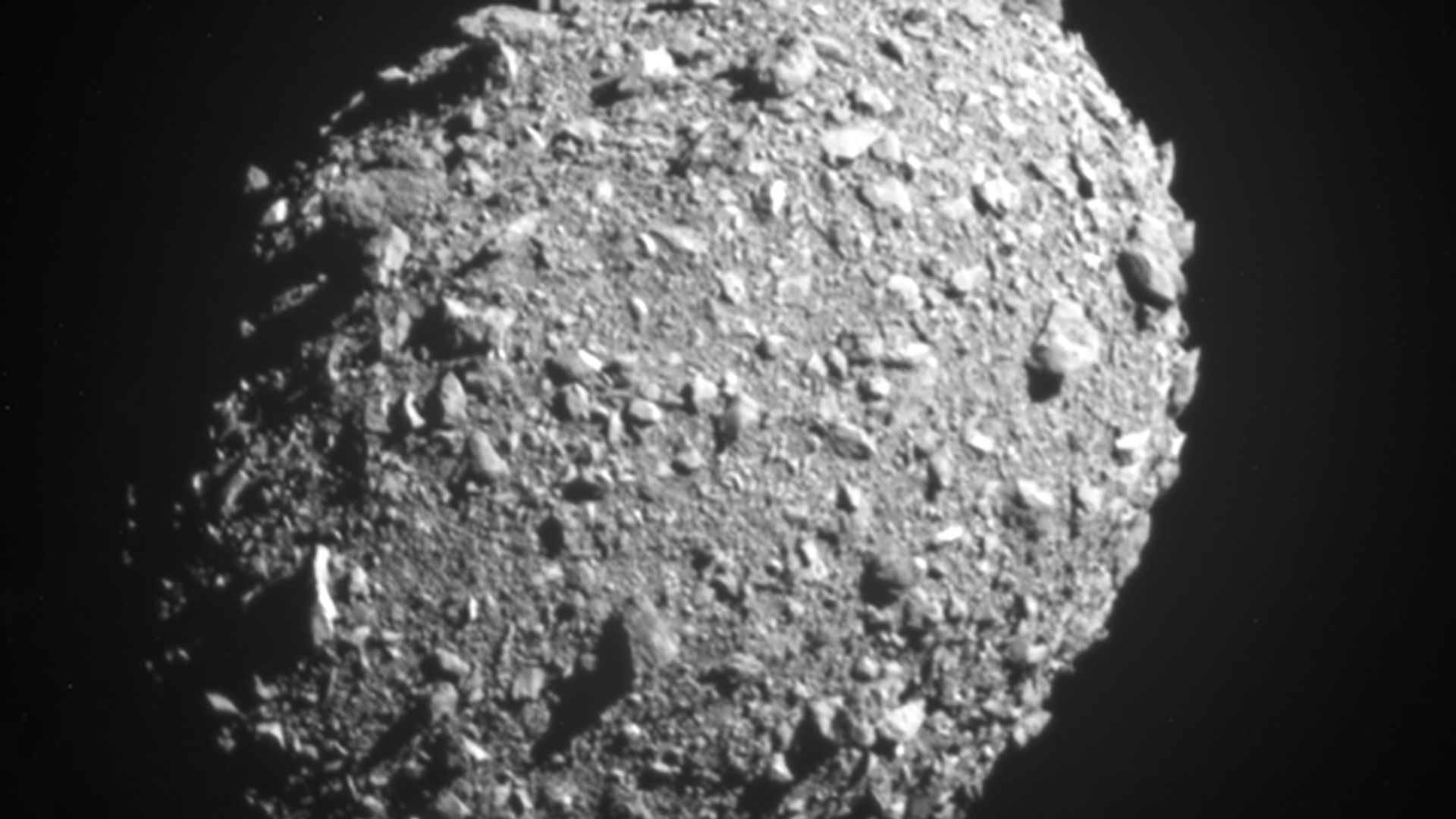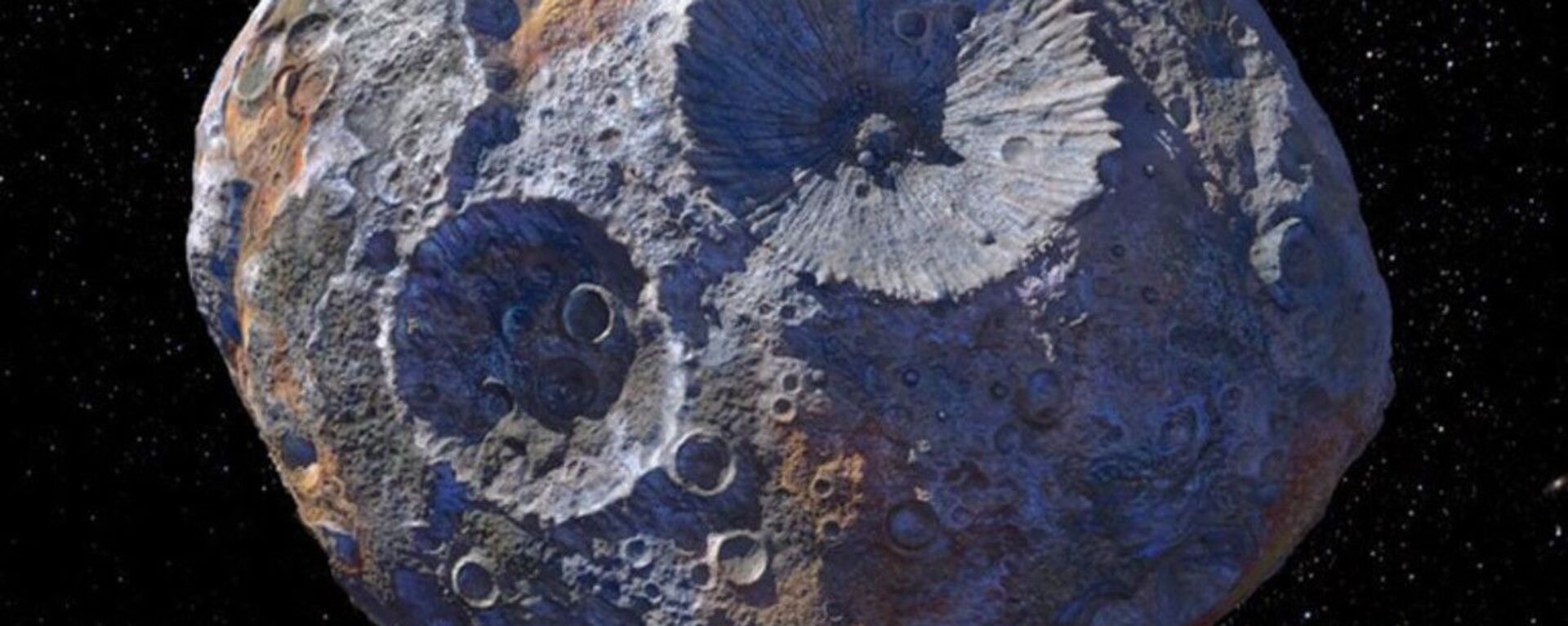https://sputnikglobe.com/20230721/scientits-spot-boulders-flung-into-space-by-nasas-asteroid-redirection-test-1112046578.html
Scientists Spot Boulders Flung Into Space by NASA's Asteroid Redirection Test
Scientists Spot Boulders Flung Into Space by NASA's Asteroid Redirection Test
Sputnik International
A byproduct of the latest attempt by NASA to test its means of diverting potentially dangerous asteroids away from Earth has been spotted recently in the... 21.07.2023, Sputnik International
2023-07-21T17:28+0000
2023-07-21T17:28+0000
2023-07-21T18:37+0000
beyond politics
nasa
hubble space telescope
asteroid
collision
results
https://cdn1.img.sputnikglobe.com/img/07e6/09/1c/1101294748_0:228:1041:814_1920x0_80_0_0_0c88b0c84fd39c84fb69514f44ced65d.png
The so-called Double Asteroid Redirection Test (DART) spacecraft collided with asteroid Dimorphos about 11 million kilometers from our planet in an attempt to change the space rock’s trajectory last September.Now, new images procured via Hubble Space Telescope reveal that some 37 boulders, their size ranging from one to seven meters, had been sent flying into space by the spacecraft collision.The boulders in question do not appear to be fragments of the asteroid chipped away by DART collision – rather, it would seem that they were already strewn about the Dimorphos’ surface at the time of the impact.Jewitt also suggested that “the boulder cloud will still be dispersing” when NASA’s Hera mission arrives at the asteroid to determine the effect of DART’s impact, as the boulders currently drift away from Dimporphos at a speed of about one kilometer per hour.
https://sputnikglobe.com/20230605/nasas-jet-propulsion-lab-fixed-staffing-failures-delaying-asteroid-mission-1110936115.html
Sputnik International
feedback@sputniknews.com
+74956456601
MIA „Rossiya Segodnya“
2023
News
en_EN
Sputnik International
feedback@sputniknews.com
+74956456601
MIA „Rossiya Segodnya“
Sputnik International
feedback@sputniknews.com
+74956456601
MIA „Rossiya Segodnya“
nasa double asteroid redirection test, nasa asteroid deflection, asteroid boulder, dimorphos asteroid
nasa double asteroid redirection test, nasa asteroid deflection, asteroid boulder, dimorphos asteroid
Scientists Spot Boulders Flung Into Space by NASA's Asteroid Redirection Test
17:28 GMT 21.07.2023 (Updated: 18:37 GMT 21.07.2023) A byproduct of the latest attempt by NASA to test its means of diverting potentially dangerous asteroids away from Earth has been spotted recently in the depths of space.
The so-called Double Asteroid Redirection Test (DART) spacecraft collided with asteroid Dimorphos about 11 million kilometers from our planet in an attempt to change the space rock’s trajectory last September.
Now, new images procured via Hubble Space Telescope reveal that some 37 boulders, their size ranging from one to seven meters, had been sent flying into space by the spacecraft collision.
"This is a spectacular observation – much better than I expected. We see a cloud of boulders carrying mass and energy away from the impact target. The numbers, sizes, and shapes of the boulders are consistent with them having been knocked off the surface of Dimorphos by the impact," David Jewitt, a planetary scientist from UCLA said in a statement shared on NASA’s official website. "This tells us for the first time what happens when you hit an asteroid and see material coming out up to the largest sizes. The boulders are some of the faintest things ever imaged inside our solar system."
The boulders in question do not appear to be fragments of the asteroid chipped away by DART collision – rather, it would seem that they were already strewn about the Dimorphos’ surface at the time of the impact.
Jewitt also suggested that “the boulder cloud will still be dispersing” when NASA’s Hera mission arrives at the asteroid to determine the effect of DART’s impact, as the boulders currently drift away from Dimporphos at a speed of about one kilometer per hour.



